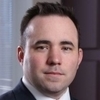Welcome to BARBRI, the trusted global leader in legal education. Continue to access the same expert-led Strafford CLE and CPE webinars you know and value. Plus, explore professional skills courses and more.
About the Course
Introduction
This CLE webinar will discuss strategies for countering and excluding circumstantial evidence and related inferences to pave the way for summary judgment or possibly a directed verdict. The program will review distinguishing proper inferences from speculation, the problem of inferences from inferences, and strategies for summary judgment and directed verdict motions. The panel will also discuss how to avoid confirming circumstantial evidence.
Description
Cases, claims, and defenses rooted in circumstantial evidence come in all shapes and sizes. Circumstantial evidence is evidence of a collateral fact that supports an inference that some ultimate fact is correct. Circumstantial evidence can be misleading; inferences can masquerade as speculation and conjecture. Counsel must be vigilant throughout the case to prevent improper evidence and inferences.
When deciding admissibility, summary judgment, or post-trial motions, courts differ regarding how firm the truth of the circumstantial fact must be to make it admissible and whether any resulting inferences must exclude all other alternatives or be consistent with the ultimate fact. Sometimes a court may apply a different standard or rule than the one articulated.
A party opposing circumstantial evidence must prepare to rebut it, requiring meticulous investigation. Letting such evidence ride through the case may be seen as corroboration of vague testimony or faulty logic, resulting in an unfavorable verdict or forced settlement.
Listen as this esteemed panel of litigators discusses defending cases built on circumstantial evidence and how to overcome it.
Presented By

Mr. Erick is a Shareholder and focuses on Commercial Litigation and Employment Law. He has represented clients in both litigation and transactional matters that span across commercial law, labor and employment, real estate, consumer protection, and general litigation including, but not limited to breach of contract, corporate trade secret theft, tortious interference, defamation, personal injury, fraud, and various other kinds of civil litigation. He has represented high-profile clients as well as defended against high-profile national and global entities in matters related to commercial litigation, defamation, privacy, negligence, the Stored Communications Act, the Texas Harmful Access by Computer Act, Texas identity Theft Enforcement and Protection Act, and the Computer Fraud and Abuse Act.

Mr. Quinn focuses his practice on general liability defense. He has a strong background in representing defendants ranging from large international corporations to small businesses and individuals. Mr. Quinn has handled cases involving premises liability, auto liability, transportation law, and wrongful death. He represents clients in tort and contract defense in state and federal courts and has taken and defended nearly 100 depositions, prepared expert witnesses, and handled nearly every aspect of litigated claims, including serving as first chair on jury trials and more than 50 bench trials.
-
This 90-minute webinar is eligible in most states for 1.5 CLE credits.
-
Live Online
On Demand
Date + Time
- event
Tuesday, September 20, 2022
- schedule
1:00 p.m. ET./10:00 a.m. PT
- Defining circumstantial evidence
- Standards governing permissible inferences from circumstantial evidence
- Only reasonable inference
- More likely than not
- Issues proved with circumstantial evidence
- Liability
- Causation
- Motive
- Accident reconstruction
- Contents of missing documents
- Strategies for rebutting circumstantial evidence
The panel will review these and other key issues:
- What is the difference between permissible inference and speculation?
- When does circumstantial evidence become res ipsa loquitur?
- What strategies exist to prevent courts and juries from unsound inferences?
- Does weak circumstantial evidence lead to nuclear or runaway verdicts?
Unlimited access to premium CLE courses:
- Annual access
- Available live and on-demand
- Best for attorneys and legal professionals
Unlimited access to premium CPE courses.:
- Annual access
- Available live and on-demand
- Best for CPAs and tax professionals
Unlimited access to premium CLE, CPE, Professional Skills and Practice-Ready courses.:
- Annual access
- Available live and on-demand
- Best for legal, accounting, and tax professionals
Unlimited access to Professional Skills and Practice-Ready courses:
- Annual access
- Available on-demand
- Best for new attorneys
Related Courses
Recommended Resources

Explore the Advantages of Consistent Legal Language
- Learning & Development
- Business & Professional Skills
- Talent Development



